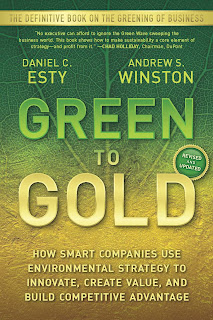As I said before, I'm a nut about quotes, so here are some that I found while doing some searched today. There's a big chunk of them. Some you have probably heard, and others are very satirical. Enjoy.
Found at a Drury University Site:
"We do not inherit the earth from our ancestors, we borrow it from our children."
-Native American Proverb
"It is horrifying that we have to fight our own government to save the environment."
-Ansel Adams
"We could have saved the Earth but we were too damned cheap."
-Kurt Vonnegut, Jr.
"Sometimes I wonder whether the world is being run by smart people who are putting us on, or by imbeciles who really mean it."
- Mark Twain
"That's human nature. Nobody does anything until it's too late."
- Michael Crichton
"However fragmented the world, however intense the national rivalries, it is an inexorable fact that we become more interdependent every day. I believe that national sovereignties will shrink in the face of universal interdependence. The sea, the great unifier, is man's only hope. Now, as never before, the old phrase has a literal meaning: We are all in the same boat."
- Jacques Cousteau, quoted in "National Geographic" [1981]
"The future will be green, or not at all. This truth lies at the heart of humankind's most pressing challenge: to learn to live in harmony with the Earth on a genuinely sustainable basis."
-Sir Jonathon Porritt
"I think the environment should be put in the category of our national security. Defense of our resources is just as important as defense abroad. Otherwise what is there to defend?"
-Robert Redford, 1985
"There must be a better way to make the things we want, a way that doesn't spoil the sky, or the rain or the land".
-Sir Paul McCartney
"I have no doubt that we will be successful in harnessing the sun's energy.... If sunbeams were weapons of war, we would have had solar energy centuries ago."
-Sir George Porter, The Observer, 26 August 1973
"There is a sufficiency in the world for man's need but not for man's greed."
-Mohandas K. Gandhi
"There's so much pollution in the air now that if it weren't for our lungs there'd be no place to put it all."
-Robert Orben
Modern technology
Owes ecology
An apology.
-Alan M. Eddison
"Don't blow it - good planets are hard to find."
-Quoted in Time
"Let us a little permit Nature to take her own way; she better understands her own affairs than we."
-Michel de Montaigne, translated
"Your grandchildren will likely find it incredible - or even sinful - that you burned up a gallon of gasoline to fetch a pack of cigarettes!"
-Dr. Paul MacCready, Jr.
"The use of solar energy has not been opened up because the oil industry does not own the sun."
-Ralph Nader, quoted in Linda Botts,ed., Loose Talk, 1980
"The packaging for a microwavable "microwave" dinner is programmed for a shelf life of maybe six months, a cook time of two minutes and a landfill dead-time of centuries."
-David Wann, Buzzworm, November 1990
"Suburbia is where the developer bulldozes out the trees, then names the streets after them."
-Bill Vaughn
"If all mankind were to disappear, the world would regenerate back to the rich state of equilibrium that existed ten thousand years ago. If insects were to vanish, the environment would collapse into chaos."
-Edward O. Wilson
"You go into a community and they will vote 80 percent to 20 percent in favor of a tougher Clean Air Act, but if you ask them to devote 20 minutes a year to having their car emissions inspected, they will vote 80 to 20 against it. We are a long way in this country from taking individual responsibility for the environmental problem."
-William D. Ruckelshaus, former EPA administrator, New York Times, 30 November 1988
It blows my mind how many of these and others that I have read were said before this huge explosion of sustainability talk and how long it has taken for us to realize what we are doing to our world. I am reading a book called "Green to Gold: How Smart Companies Use Environmental Strategy to Innovate, Create Value, and Build Competitive Advantage" and read "The capacity of the world's oceans once seemed endless both as a source of fish and as a place to dump waste..." (p. 58)
And it hit me. Whose idea was it to dump our waste into the oceans in the first place? It doesn't make sense at all, and even if you couldn't care less about the animals and biodiversity and coral reefs and don't understand the fact that all of that is helping us to live, we eat fish from those waters. It seems like common sense that we don't want our waste there, and we should have realized the need to reduce waste way back then, when we had to start figuring out where to put all of the waste from our consumption.
















